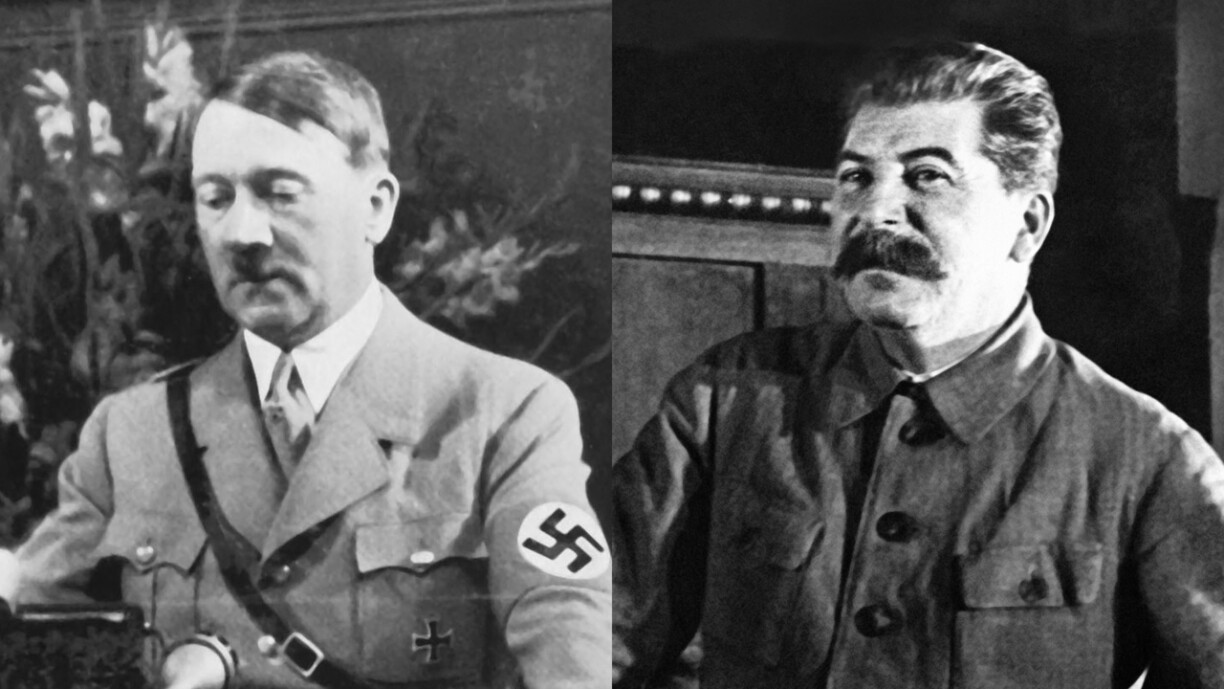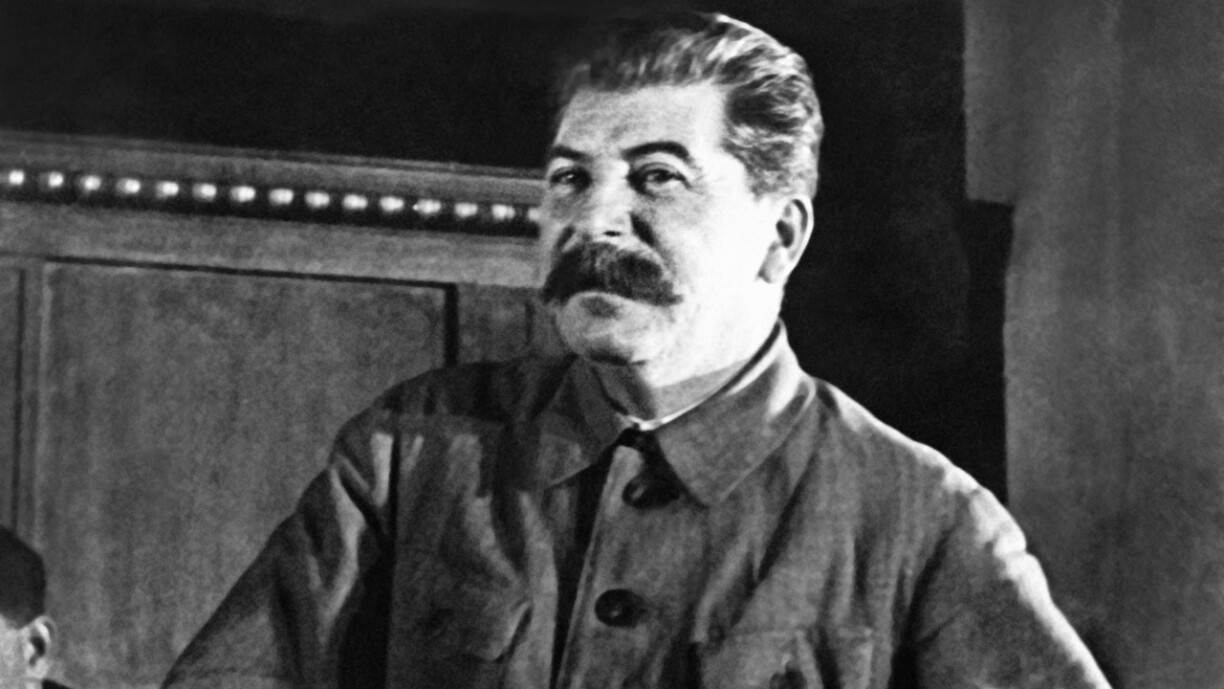
During the campaign for Germany’s federal elections, Weidel referred to Hitler as a communist and far-left extremist in an interview with Elon Musk on X: “The greatest success after this terrible era of our history was to label Adolf Hitler as right-wing and conservative. He was the exact opposite. He was not conservative. He was this socialist-communist type.”
To assess this statement, RTL spoke with historian Prof Christoph Brüll from the University of Luxembourg and political scientist Michel Dormal from RWTH Aachen.
Historian Christoph Brüll points out that the notion of Hitler being a communist has persisted since World War II. Conservative politicians have often invoked it, including Franz Josef Strauß during the 1980 Bundestag campaign, when he described Hitler and Goebbels as “Marxists”. This was swiftly unmasked as propaganda, Brüll says.
Such rhetoric still finds some resonance in mainstream society, he notes, even though “historically it is clearly false and relatively easy to refute.” The Nazis’ primary enemies were communists and social democrats, whom they targeted from the outset. Nazi propaganda portrayed Jews as the force behind Bolshevism – a theory thoroughly disproved by historical evidence.
Political scientist Michel Dormal agrees: “Communism and Bolshevism were key enemies for Hitler from the beginning.” The NSDAP’s economic policies were also not communist. The party worked closely with large corporations and granted them numerous privileges.

Some far-right politicians refer to an alleged quote by Joseph Goebbels – “In accordance with the NSDAP’s ideas, we are the German left. Nothing is more hateful to us than the right-wing national ownership block.” Since the 1970s and 1980s, this misattribution has repeatedly surfaced in circles associated with the so-called “New Right” as part of their broader efforts to reinterpret history for ideological purposes.
But Goebbels never said this. Historian Volker Weiß debunked the claim in Die Zeit on 19 February 2025, noting that a similar quote came instead from Joachim Haupt, a member of the NSDAP’s national-revolutionary, left-leaning wing under Ernst Röhm.
As Weiß notes in his book Das Deutsche Demokratische Reich, this wing was “brutally eliminated” by the Nazis as early as 1934.
According to Brüll, the NSDAP redefined “socialism” and “workers’ party” for its own purposes, unlike classical socialist or Marxist parties. As early as the 1920s, Goebbels and Hitler adopted the terminology to attract working-class voters. The party aimed to set itself apart from right-wing nationalist and conservative parties targeting elites.
The NSDAP’s version of socialism had nothing to do with egalitarianism. Instead, it served to propagate an ethnically defined, antisemitic idea of a national community. From the standpoint of intellectual history, their use of socialism was a populist appeal to the masses.
The New Right often interprets this mass appeal as evidence of collectivism, and thereby of Marxist tendencies. Brüll firmly rejects this: the NSDAP’s version of socialism was simply an offer to working-class voters to participate in the Volksgemeinschaft.
“It had nothing to do with the core ideas of Marxism or socialism in the strict sense”, he explains. The NSDAP was never a genuine workers’ party and never intended to be. It used workers as a means to gain power. Although the party promised social mobility, its main voter base was the “fearful middle class.”
From a political science perspective, the NSDAP was neither left-wing nor conservative. As Brüll and Dormal both stress, the Nazis rejected core leftist and communist ideals such as equality, class struggle, and Enlightenment universalism.
Dormal adds that the party was also not conservative in the traditional sense, which seeks to preserve existing structures. Instead, the Nazis aimed for radical renewal and a national “rebirth”, advocating complete political overhaul.
“Arbitrary Führer will, mass movements, and paramilitary terror were a far cry from the old Prussian bureaucracy, which was authoritarian but stable and predictable”, he says.
While the Nazis were not conservative, they were unequivocally right-wing. “There is such a thing as right-wing revolutionary politics”, Dormal explains.

Historian Brüll acknowledges some similarities between the Nazi regime and Stalin’s rule in the Soviet Union, including the cult of personality and efforts to control the entire population.
However, research today focuses more on the fundamental differences. While both regimes relied on militarisation and rapid implementation of their goals, their ideological foundations diverged significantly.
Communism, at least theoretically, is based on inclusion, while Nazism depended on exclusion. In Germany, this meant the exclusion of Jews, Sinti, and Roma, among others.
Although comparisons can be made, the contexts and starting points were entirely different.
From a political science perspective, antisemitism was present in both ideologies – racist and biologically motivated on the right, and rooted in simplified anti-capitalist narratives on the left.
Left-wing antisemitism often equated capitalism with finance capital and linked it to a small, conspiratorial elite. Dormal confirms that there are partial similarities between left- and right-wing antisemitism, “but that is because both are forms of antisemitism.”
“No political movement is immune to it”, he warns, “even if some would like to think otherwise.”
While public debate has occasionally raised the question of whether Hitler could be considered a communist, “this is not a serious discussion among historians”, Brüll says.
Both Nazism and communism featured mass mobilisation and the promise of social advancement, but ideologically the Nazis’ main enemy was the political left.
Statements from Hitler and Goebbels confirm this: neither ever described themselves as leftist, communist, Marxist, or social democrat.

Dormal notes that attempts to ideologically reinterpret Nazism are not new and serve various political agendas. Liberal conservatives may cite Nazism as an argument against “mob rule”, while leftists portray it as the mask of a bourgeois elite abandoning democracy.
“In Alice Weidel’s case, this is clearly an attempt to cheaply distance herself from associations with National Socialism”, says Dormal.
The AfD, he explains, is internally divided: Weidel represents a West German, strictly neoliberal faction that flatters US tech billionaires and tries to align herself with figures like Elon Musk by reinterpreting history.
In contrast, in eastern Germany, the idea of a “Volksgemeinschaft” is more prevalent – a vision more closely aligned with original Nazi ideology.
“Weidel’s distorted reading of history is part of an internal AfD struggle over what kind of right-wing politics the party wants to represent.”
Email the RTL Fact Check team at faktencheck@rtl.lu.